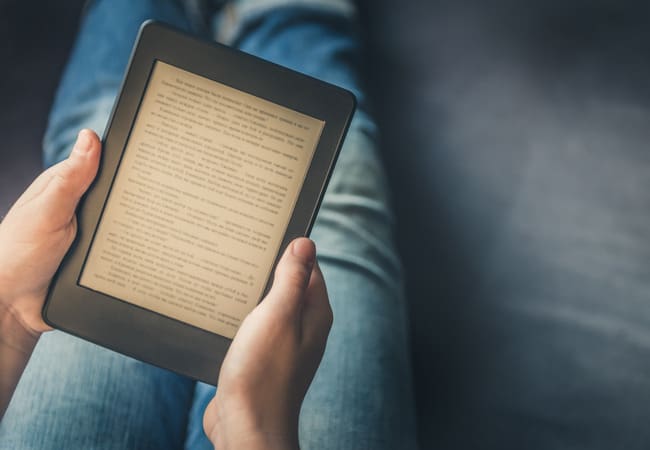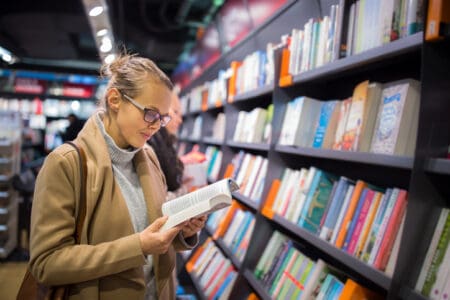Book retailing is going through a period of dramatic change. Following a trend of declining book sales in the UK since 2012 the sector has seen a sudden boost as a result of the increase in popularity for digital and eBooks. Over half of consumers purchased a book in the last 12 months, and 4 out of 10 people purchased a digital or eBook. This is revealed in our UK Books and eBooks Market Report highlighting UK consumer behaviours towards books and eBooks.
As lifestyles become increasingly digitised, consumers are now elevating the value of physical goods. Demonstrating the resilience of print books, Mintel research found that 50% of consumers have purchased a print book in the last twelve months; a. In comparison, a quarter of consumers have bought a digital or e-book in the last year, a slight decrease on the previous year. Meanwhile, the increase in audiobook listening over the past two years has accounted for the decrease in physical and digital readers.
Price remains a key driver in book purchasing as the majority of Brits say they are influenced by price when buying a book. This figure correlates with the dominance of Amazon in the sector with the retailer’s competitive pricing strategy continuing to give consumers a compelling reason to shop online for books. Although Amazon is going from strength to strength with book sales, independent bookshops are struggling – highlighting the need for such retailers to offer consumers a compelling reason to shop with them.

Driving Consumers Back in Store
In an era where nearly everything can be bought online, traditional brick-and-mortar retailers need to offer something unique to continue to engage consumers. As a result, there is an increasing number of retailers using innovation to drive people back to traditional bookshops.
Highlighting staff expertise and offering an oasis of calm can prove effective in drawing consumers back to stores. In a bid to establish a point of difference and tap into the consumers who are influenced by a pleasant bookstore experience, London store Libreria is amongst numerous retailers taking a strong stance on the purity of the retail environment by not providing Wi-Fi in store. The bookshop has streamlined its stock offer into themes to encourage customers to make new discoveries, celebrating human curation over algorithmic rhythms. It also owns its own printing press in the basement, running courses that allow customers to print their own works.
Another example of book retail innovation is Morioka Shoten in Japan. The retailer stocks just one featured book which changes weekly, often accompanied by art and photos that complement the title. The owner, Yoshiyuki Morioka, created a space to spotlight just one literary work in a bid to address decision fatigue caused by having too many options.
Speed is Everything
Another key driver in book purchasing is the speed of delivery. NearSt is an online platform which aims to make it easier for independent and local stores to compete with market giants. The retail tech startup allows consumers to browse local shop assortments and enables retailers to offer a one-hour delivery service.
Grow a Community of Loyal Shoppers
There is a real opportunity for book retailers to learn from other sectors. A trend which is increasingly apparent in the sports goods sector, creating a localised community is an effective way of engaging consumers. For example, introducing ‘meet the author events’ which 1 out of 5 book readers said they would be interested in. The sector at present sees a low level of channel hopping, signifying a certain level of loyalty in book consumers. Therefore, building a strong relationship with such a shopper is undoubtedly a wise move. Furthermore, this allows specialists to harness their expertise and knowledge.
Alternatives to Physical Books
Consumers are moving away from purchasing physical books and turning to eBooks and audiobooks. Over half of consumers have an active audiobook subscription and an eBook subscription, highlighting the need for traditional texts to also be offered digitally. The Amazon Kindle is the third most owned device amongst consumers, with the majority aged 65+. This further reflects the move away from traditional paper books and we expect to see an increase in devices over the coming years.
Sparked your interest? Buy and download our UK Books and eBooks Market Report 2022 for further book industry trends, or fill out the form below to sign up to Spotlight, Mintel’s free newsletter for exclusive insights.









































